Artificial intelligence is revolutionizing the automotive industry. AI tools enhance safety, convenience, and personalization for drivers. Mercedes-Benz AG integrates AI to improve autonomous driving, navigation capabilities, and customer experience.
This partnership signals Mercedes-Benz’s commitment to software-defined vehicles (SDVs). By integrating Google’s AI-driven solutions, Mercedes-Benz Mobility strengthens its competitive edge against Tesla, General Motors, and Chinese newcomers.
The collaboration aligns with the company’s strategy to lead in autonomous driving and electric mobility. The strategic partnership with Google Cloud enables AI-driven innovation, setting new standards in luxury mobility.
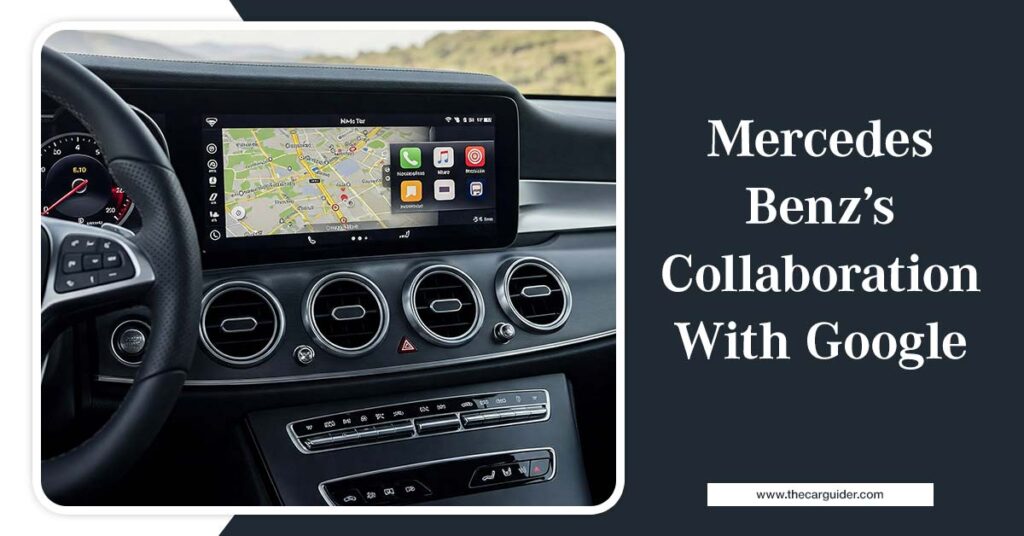
What Is The Partnership About?
Mercedes-Benz Group AG has partnered with Google to enhance its digital capabilities. This collaboration focuses on integrating Google Cloud AI, Google Maps Platform, and Vertex AI into Mercedes-Benz vehicles. The partnership aims to create a more advanced and intuitive driving experience by leveraging AI tools and cloud computing.
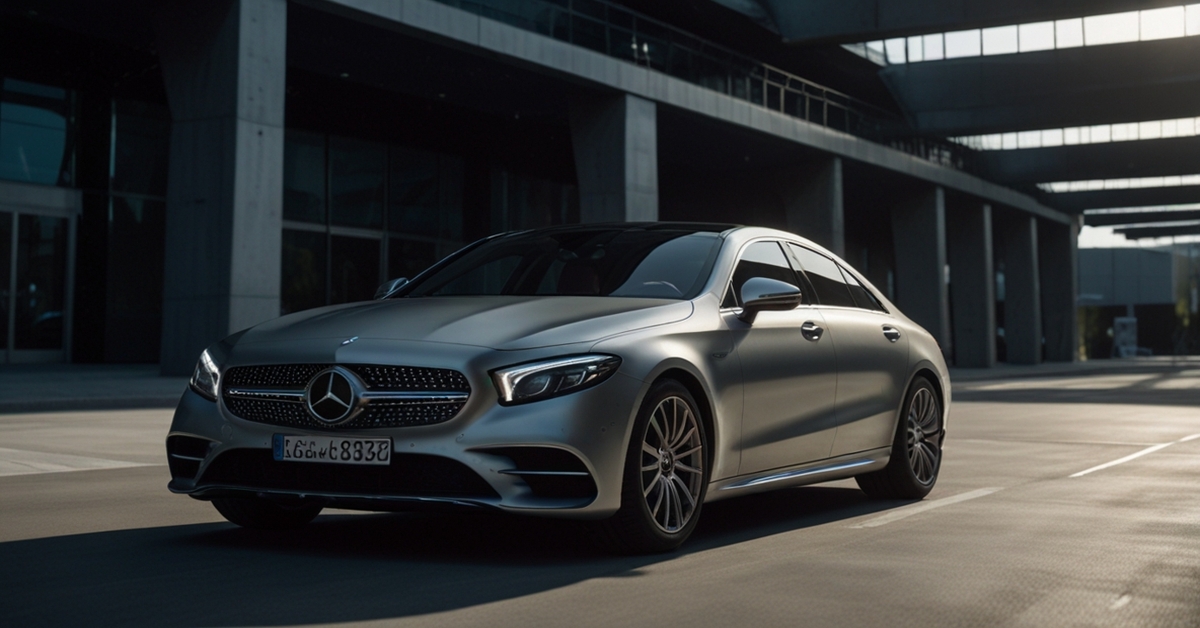
Key Features Of The Partnership
- Development of an AI virtual assistant
- Enhancements in navigation systems
- Focus on locating nearby chargers
Mercedes-Benz Group AG collaborates with Google Cloud AI and Vertex AI to develop a next-generation MBUX virtual assistant. This AI-powered system leverages conversational AI to provide intuitive voice interactions.
The Google Maps platform enhances navigation by offering real-time place details and locating nearby charging stations for electric vehicles. Automated driving sensors and AI tools improve autonomous driving, ensuring a seamless experience for Mercedes-Benz cars and vans.
Key Areas Of Collaboration
- AI-driven navigation: Google Maps Platform enhances navigation capabilities with real-time traffic data and place details.
- Cloud computing: Google Cloud AI supports connected car development and automated driving sensors.
- Conversational AI: MBUX Virtual Assistant integrates Google Assistant and Automotive AI Agent for improved customer experience.
- Generative AI: Vertex AI enables smarter over-the-air (OTA) updates and personalized infotainment.
Google’s Role In The Partnership
- Google Maps integration for superior navigation
- AI-powered voice assistant and infotainment improvements
- Cloud computing for autonomous and connected car development
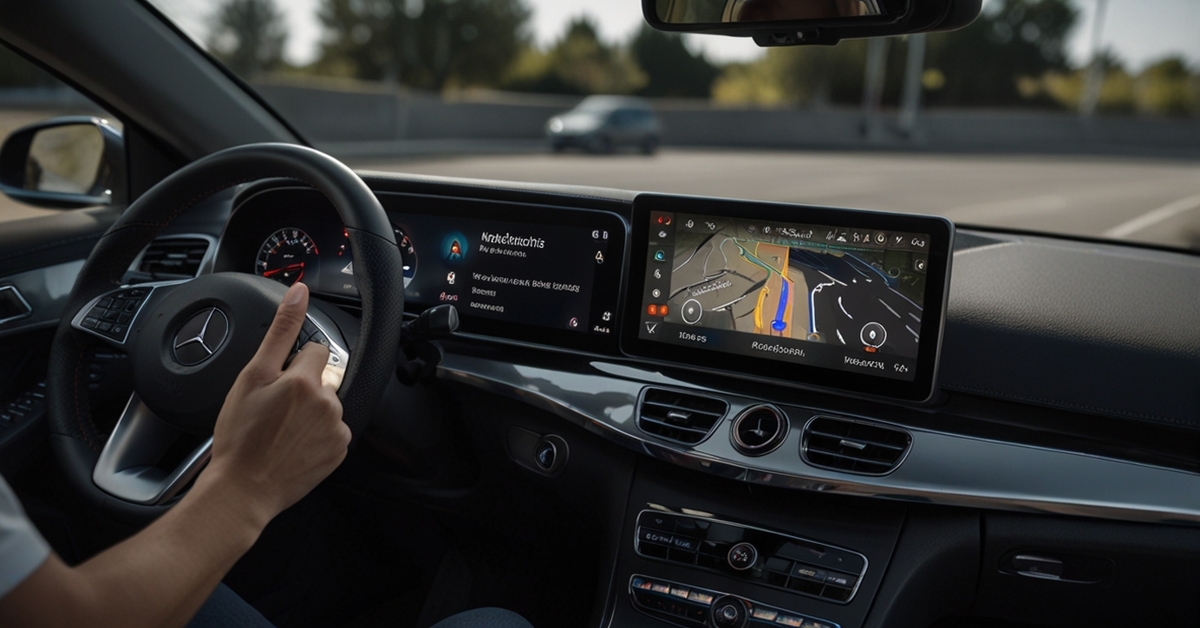
Google Maps Platform brings real-time traffic updates, place details, and route optimization to Mercedes-Benz vehicles. This integration enhances navigation capabilities, creating a branded navigation experience tailored for luxury drivers.
Google Assistant, integrated with MBUX Virtual Assistant, improves conversational AI interactions. This upgrade allows drivers to control relevant vehicle functions using natural voice commands.
Google Cloud AI enables faster data processing and predictive analytics. Mercedes-Benz uses Google’s cloud computing services to optimize automated driving sensors and electric vehicle performance.
The Benefits For Mercedes-Benz Users
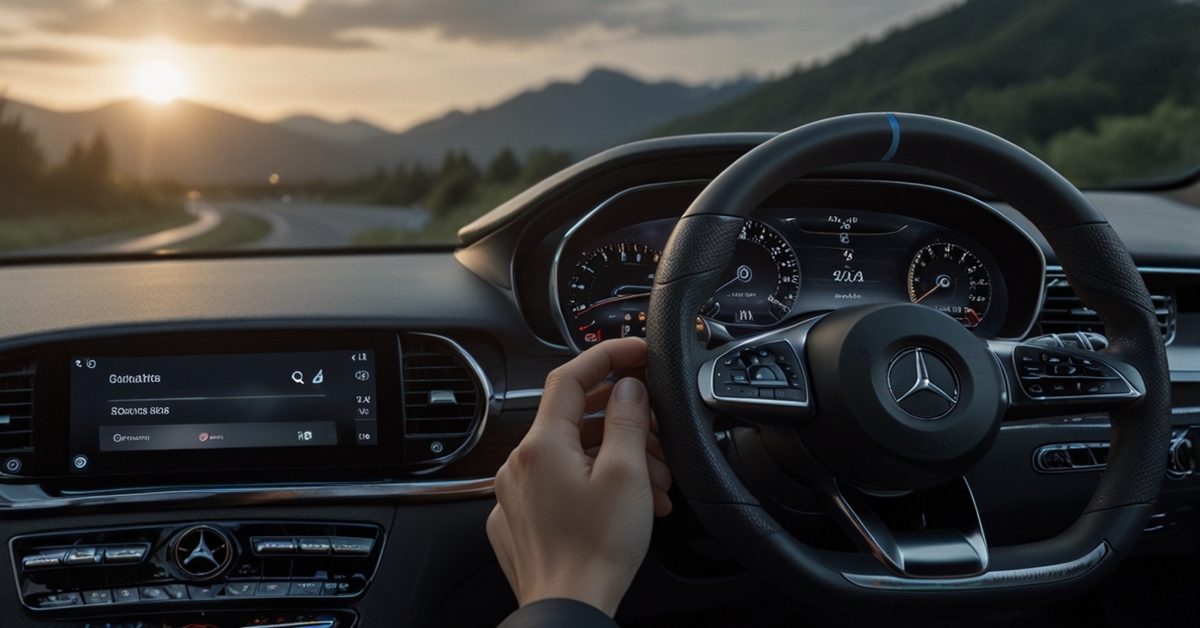
- More intuitive driving experience with real-time data
Mercedes-Benz Mobility enhances customer experience with AI-driven navigation and infotainment. Google’s AI algorithms ensure precise route planning and adaptive driving recommendations.
- Enhanced personalization with Google AI algorithms
Generative AI tailors vehicle settings, entertainment, and voice interactions to individual user preferences. AI-driven customer service solutions streamline support and troubleshooting.
- Faster and smarter over-the-air (OTA) updates
Mercedes-Benz uses AI tools and cloud-based updates to improve vehicle performance. Google Cloud AI ensures seamless software upgrades, enhancing security and functionality.
Broader Industry Impact
How this move positions Mercedes-Benz in the smart car race: Mercedes-Benz Group AG strengthens its market position by integrating AI-driven automotive solutions. The strategic partnership accelerates digital transformation in the automotive industry.
Impact On The Customer Experience
The Google partnership transforms the customer experience with smarter, more interactive vehicle functions. The Mercedes-Benz virtual assistant, powered by generative AI, personalizes in-car interactions. Google Assistant integration enables hands-free control of navigation, climate, and entertainment.
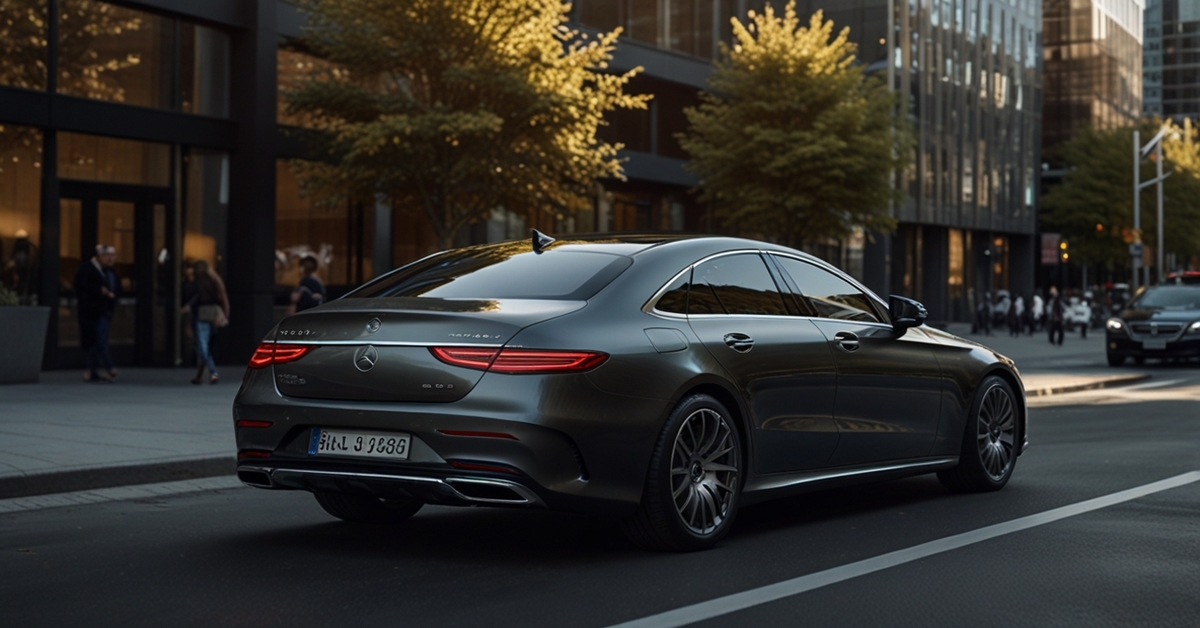
User feedback highlights improved accessibility and convenience, while the company addresses privacy concerns with secure data handling practices. Chief Executive Ola Källenius emphasizes AI’s role in elevating customer service and user engagement.
History Of Mercedes-Benz And Tech Collaborations
Mercedes-Benz has partnered with NVIDIA, Qualcomm, and Microsoft in the past. These collaborations laid the foundation for its software-first approach.
Potential Challenges & Concerns
- Data privacy and cybersecurity issues: Storing personal information in the cloud raises privacy concerns.
- Over-reliance on Google and tech giants: Dependence on a single tech partner may limit flexibility.
- Cost implications for premium software features: High-end AI solutions may increase vehicle prices.
The Future Of Mercedes-Benz’s Tech Strategy
Mercedes-Benz plans to expand its AI-driven mobility solutions. Future collaborations may include deeper AI integrations and enhanced automated driving sensors.
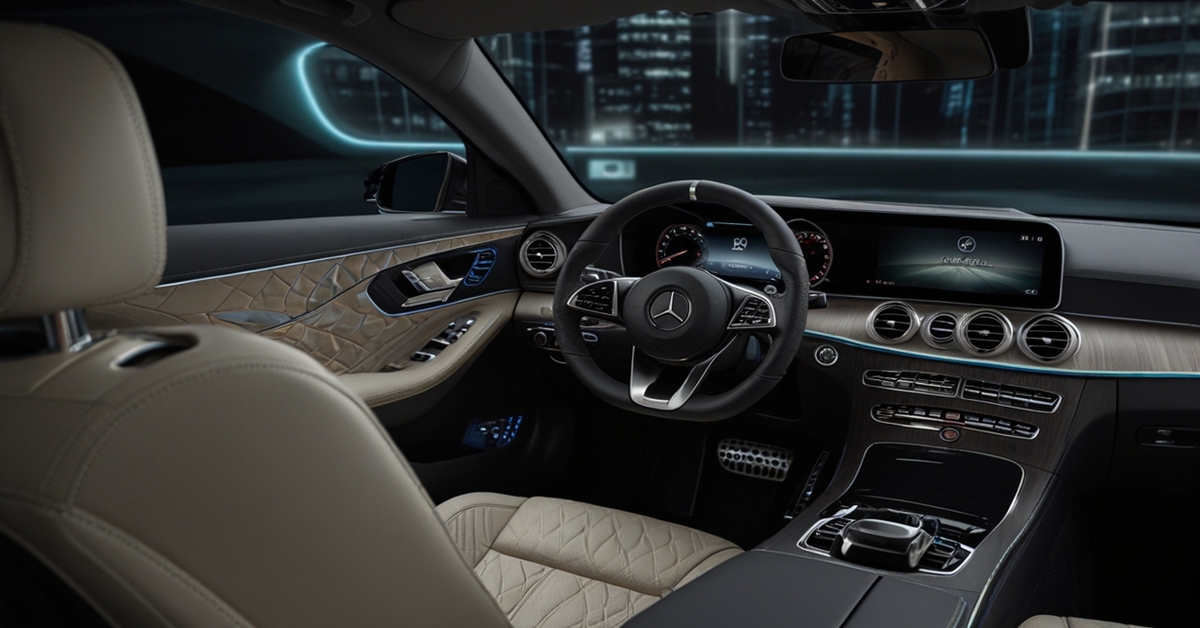
Competitive Advantage In The Luxury Segment
Through continuous AI advancements, Mercedes-Benz positions itself ahead of competitors like General Motors, Aston Martin, and Chinese newcomers. The branded navigation experience, powered by Google Cloud, differentiates Mercedes-Benz mobility from other luxury automakers.
Forward-looking statements from industry leaders, including Sundar Pichai, highlight the transformative impact of AI on the automotive industry. Innovation remains crucial for maintaining a competitive edge in passenger and electric mobility markets.
The Need For Tech Partnerships In The Auto Industry
- The shift from traditional cars to software-defined vehicles (SDVs)
The automotive industry is transitioning from mechanical engineering to software-driven innovation. Mercedes-Benz AG recognizes the need to adopt AI tools and cloud computing to remain competitive. Software-defined vehicles require real-time data processing, automated driving sensors, and seamless connectivity.
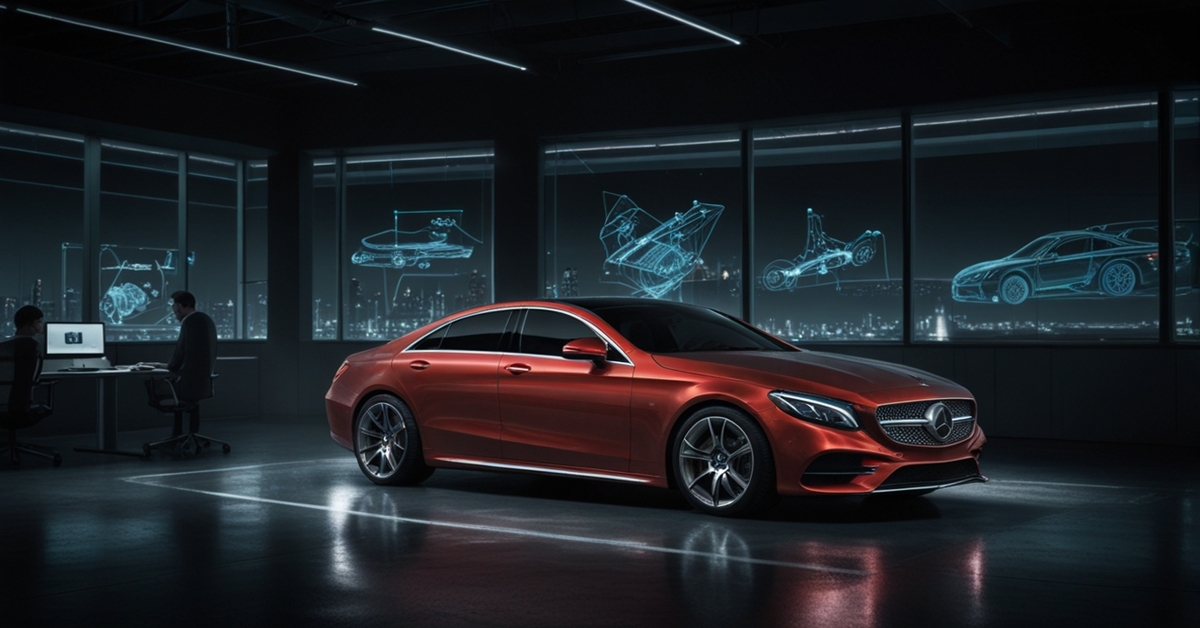
Increasing Demand For AI-Driven In-Car Experiences
Consumers expect AI-powered infotainment and virtual assistants. Enhanced by Google Cloud AI, Mercedes-Benz Virtual Assistant delivers a more personalized driving experience. AI tools provide relevant vehicle functions, branded navigation experiences, and automated recommendations.
How Mercedes-Benz Aims To Compete With Tesla And Other Tech-Driven Automakers
Mercedes-Benz Cars integrates AI and cloud-based innovations to challenge Tesla and General Motors. The partnership with Google provides access to cutting-edge AI solutions, ensuring better navigation, customer service, and automated driving capabilities.
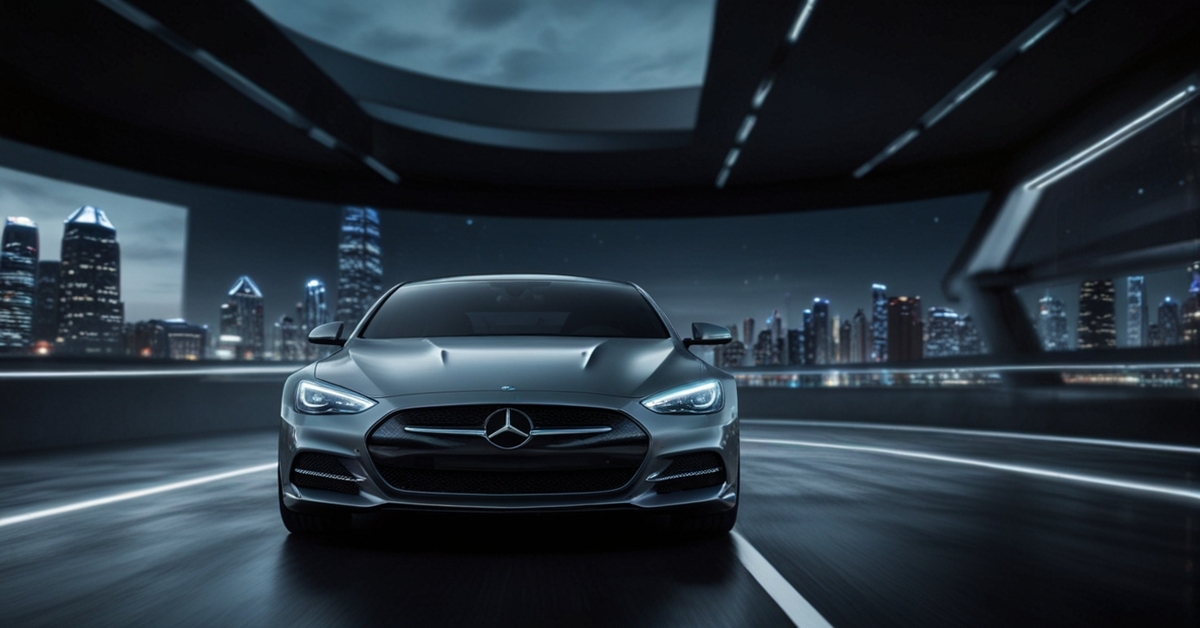
Future Of Tech-Driven Collaborations
The partnership highlights the growing role of tech giants in vehicle development. Companies like Aston Martin and Dürr Group may seek similar collaborations to remain competitive.
Implications for other automakers (BMW, Audi, Tesla): Competitors like BMW, Audi, and Tesla must innovate to match Mercedes-Benz’s AI advancements. The collaboration with Google raises the bar for in-car AI experiences and autonomous driving technologies.
Collaboration With Other Tech Giants
Beyond Google Cloud, Mercedes-Benz Group strengthens partnerships with NVIDIA and the Dürr Group. Ongoing collaborations enhance digital production, enabling software-defined vehicles with advanced AI capabilities.
These strategic partnerships ensure Mercedes-Benz leads the automotive industry in AI-driven luxury mobility. As software and AI become central to vehicle functions, Mercedes-Benz embraces innovation to redefine the future of driving.
Conclusion
Mercedes-Benz’s strategic partnership with Google reshapes the automotive industry. AI tools, cloud computing, and navigation capabilities enhance customer experience. This collaboration positions Mercedes-Benz as a leader in electric mobility and autonomous driving. Will this partnership make Mercedes-Benz the leader in smart cars? What do you think?
FAQs:
1.What Is The Nature Of The Partnership Between Mercedes-Benz And Google?
Mercedes-Benz and Google have established a long-term strategic partnership to innovate and enhance the digital luxury car experience. This collaboration allows Mercedes-Benz to integrate Google’s geospatial data and navigation capabilities into their vehicles, providing detailed information about places, real-time traffic updates, and more.
2.How Does This Partnership Enhance The Navigation System In Mercedes-Benz Vehicles?
By integrating Google’s geospatial data, Mercedes-Benz vehicles offer a branded navigation experience with detailed information about places, real-time and predictive traffic information, and automatic rerouting. This integration enhances the usability and graphics on the car’s high-resolution screen.
3.What Are The Key Features Of The Upgraded MBUX Virtual Assistant Powered By Google’s AI?
The upgraded MBUX Virtual Assistant, powered by Google’s Automotive AI Agent, offers enhanced conversational capabilities. It can provide detailed and personalized responses about navigation and points of interest, handle complex dialogues, and retain memory of conversations, making interactions more natural and helpful.
4.How Does The Integration Of Google Maps Platform Benefit Mercedes-Benz Drivers?
The integration of Google Maps Platform provides drivers with access to Google’s leading geospatial offering, including detailed information about places, real-time and predictive traffic information, and automatic rerouting. This enhances the navigation experience and overall driving convenience.
5.What Role Does Google Cloud’s AI Play In Mercedes-Benz’s Vehicle Features?
Google Cloud’s AI and machine learning capabilities enable Mercedes-Benz to create, train, and deploy new models swiftly, enhancing customer experiences. This includes improvements in navigation, in-car AI agents, and personalized services.
6.How Does The Partnership Impact The Future Of Autonomous Driving For Mercedes-Benz?
The collaboration with Google allows Mercedes-Benz to utilize Google’s data and AI capabilities to advance autonomous driving features. This includes assisted driving features such as automatic speed adjustments before intersections, roundabouts, or curves, contributing to the development of more autonomous and connected vehicles.
7.What Other Tech Companies Has Mercedes-Benz Partnered With Recently?
In addition to Google, Mercedes-Benz has partnered with NVIDIA to enhance its in-car AI capabilities. This collaboration aims to introduce new conversational features to the MBUX Virtual Assistant, providing more detailed and personalized responses about navigation and points of interest.
8.How Does Mercedes-Benz’s Partnership With Google Compare To Other Automakers’ Tech Collaborations?
Mercedes-Benz’s partnership with Google positions it at the forefront of integrating advanced AI and navigation technologies into vehicles. This collaboration aims to create a next-generation digital luxury car experience, setting it apart from other automakers and highlighting its commitment to innovation.